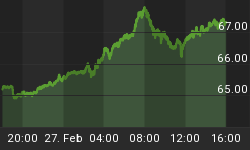A $100-billion tax cut would reduce capital gains payouts by indexing those gains to inflation, and if Democrats won’t let it through legislatively, Trump is apparently willing to try to push it through the Treasury unilaterally, according to the New York Times.
Talk of the new tax cut plan is said to have emerged from the mouth of Treasury Secretary Steven Mnuchin at a G-20 meeting in Argentina, where NYT quoted him as saying that if Congress wouldn’t make it happen the administration would “look at what tools” are available to get it done.
What he meant was the powers of the Treasury—and not everyone agrees on what’s possible. Not everyone agrees on what it would mean to index capital gains to inflation, either.
Mnuchin said the administration was internally “studying the economic costs and impact on growth” of a $100-billion capital gains tax cut.
The embryonic tax-cut idea, according to NYT, would see assets valued after adjusting for inflation. Presently, the tax is on the difference between the original price and the sales price, but if the administration gets its way here, investors would get to subtract the value of inflation and reduce taxable income. In other words, if your assets increase in value, you won’t pay taxes on that value.
It’s a great tax for investors, but feathers are being ruffled because it’s a tax cut for the wealthy that is being discussed just as the country’s top 1 percent of taxpayers are about to get a 20-percent cut based on the GOP tax plan passed by Congress in November.
The regular GOP (far-right aside) in Congress doesn’t want to touch it, largely because they know it’s not going to pass and isn’t worth their time.
Related; Iran Reconsiders Crypto As Sanctions Loom
Detractors are up in arms, too, because it would come at a time of massive national debt, which would be increased by billions of dollars with this tax cut.
The U.S. national debt has already topped $21 trillion, a far cry from Trump’s campaign promise to eliminate debt within eight years.
Changing the capital gains tax would drain government coffers by further tens of billions over that same time period, or possibly more as the wealthy take advantage of new loopholes.
This is how it would play out, according to two tax law professors: “Imagine that a taxpayer buys an asset for $100 that is fully financed by a loan. Assume that the real interest rate is zero, that the inflation rate is 10%, and that the nominal interest rate on the loan is 10% as well. One year later, assuming no change in the real value of the asset, the asset will be worth $110 on account of inflation. If basis is indexed for inflation, the taxpayer can sell the asset for $110 and recognize no taxable gain. Assuming that the interest is properly allocable to a trade or business, the taxpayer can claim an interest deduction of $10 with no offsetting gain, despite the fact that the taxpayer is in the same pretax position as previously.”
When it comes to the tax cut itself, economics aside, there is also a bipartisan brawl brewing over what powers the Treasury has in this case. While conservatives think the Treasury has the executive power to push this through on its own, Democrats think not.
But even Mnuchin isn’t sure about this one, according to NYT.
The general Conservative argument is that a 2002 Supreme Court ruling in a telecommunications case that had nothing to do with taxes, as the Democrats point out, noting that in 1992, the Treasury and Department of Justice both found that the Treasury lacked the power to take such unilateral action.
By Fred Dunkley for Safehaven.com
More Top Reads From Safehaven.com
















